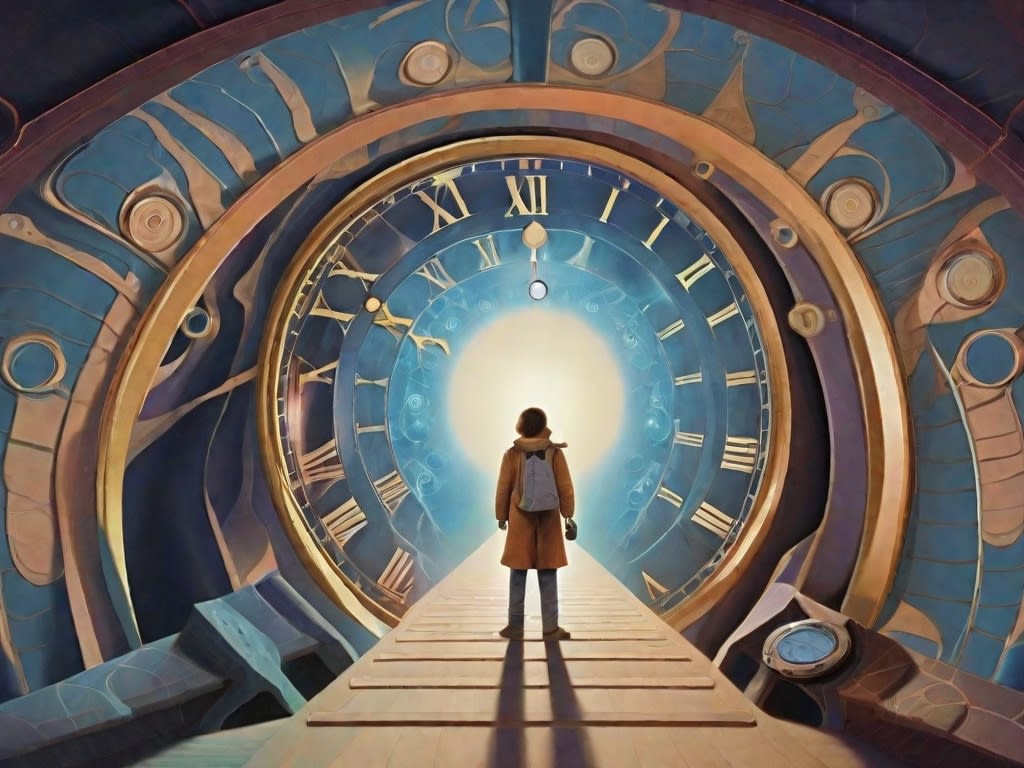
Have you ever dreamt of traveling through time? The idea of going back to the past to change events or venturing into the future to see how things turn out has captured the human imagination for centuries. Time travel is a concept deeply rooted in science fiction, with books and movies exploring its benefits and risks. But is time travel actually possible, and if so, what would it take to achieve it? In this exploration, we'll unravel the mysteries of time travel.
Understanding the Nature of Time:
To comprehend time travel, we must first grasp the nature of time itself. In classical physics, time was considered a universal and absolute concept, progressing at the same pace for everyone, everywhere. It was an independent entity, unaffected by the observer's perception. According to this classical view, a cause always followed an effect, never the other way around. However, this understanding of time has limitations and doesn't hold true in all scenarios.
Einstein's Theory of Relativity:
Albert Einstein's theory of relativity revolutionized our understanding of time. It introduced the concept of spacetime, where time is intricately linked to space, forming a four-dimensional continuum. This theory explains that time is not constant but can be influenced by various factors.
Two crucial aspects of the theory of relativity are time dilation and gravitational time dilation. Objects moving at high speeds experience time passing more slowly compared to those with less velocity. Similarly, objects within strong gravitational fields, like those near massive celestial bodies, also experience time passing at a different rate. In simpler terms, time isn't universal but varies depending on relative motion and gravity.
Consequences of Time Dilation:
The implications of time dilation are profound and sometimes unexpected. For example, astronauts orbiting Earth age more slowly than those on the planet's surface due to their high-speed travel. Time dilation also occurs near black holes, where gravitational forces are exceptionally strong. A person falling into a black hole would, in theory, witness events from the universe unfolding over hundreds of millions of years before succumbing to their fate. Time would behave so differently that life outside the black hole would be unrecognizable.
Speed of Light:
One of the most intriguing aspects of time dilation occurs when objects approach the speed of light. As something accelerates toward the speed of light, time slows down for it. At the theoretical maximum speed of light, time appears to stand still. A photon of light, even though it takes millions of years to travel from a distant star to Earth, experiences its journey instantaneously. This unique characteristic of time at the speed of light raises the possibility of traveling forward in time by accelerating to such speeds.
Traveling Back in Time:
While traveling forward in time seems plausible through relativistic effects, going backward in time is far more challenging. If we consider that time is neutral when traveling at the speed of light, the question arises: could exceeding the speed of light make time move in reverse? Some theories suggest that it might be possible. The hypothetical subatomic particle called a tachyon, which has never been observed, is theorized to do precisely this.
Wormholes and Quantum Physics:
Other theories explore the concept of wormholes—tunnels through the fabric of spacetime that could create shortcuts between different times and places. While wormholes are allowed by the theory of relativity, the immense energy required to create one may result in the formation of a black hole, making them inherently unstable.
Some researchers investigate the use of lasers to generate extreme levels of gravity or delve into quantum physics to explore the possibility of forming quantum tunnels between universes. String theory and cosmic strings, along with black holes, are also subjects of inquiry to understand how they could warp spacetime enough to enable backward time travel.
In Conclusion:
Time travel, once purely a subject of science fiction, is now considered within the realm of scientific exploration. While we have made significant advances in understanding the universe over the last century, time travel remains a concept beyond our current capabilities. The laws of physics allow for the possibility, and it may become more science than fiction in the future.
The mysteries of time travel are far from being solved, but as our understanding of the universe continues to expand, who knows what the future might hold? Do you believe time travel is already possible, or do you think it remains in the realm of science fiction? The journey to unlock the secrets of time travel continues, and the possibilities are as exciting as they are mysterious.
About the Creator
Sophia Hayes
💰 Crafting Life's Stories, Poems, Fascinating Facts and Intriguing health, wealth facts await! 🌟 – A Journey Through Elegance.📚✒️
Subscribe for daily insights.
#Finance #Stories #Poetry #funfacts #WellnessWisdom 💚
Enjoyed the story? Support the Creator.
Subscribe for free to receive all their stories in your feed. You could also pledge your support or give them a one-off tip, letting them know you appreciate their work.






Comments
There are no comments for this story
Be the first to respond and start the conversation.